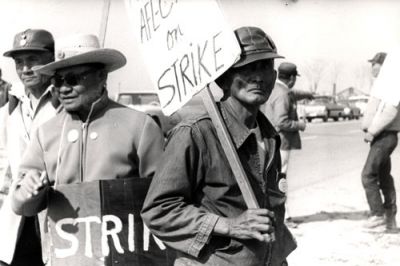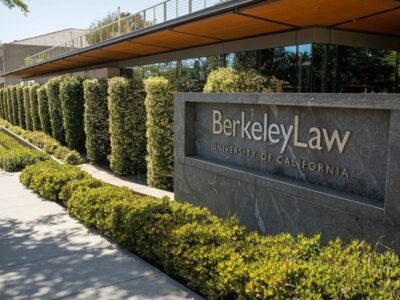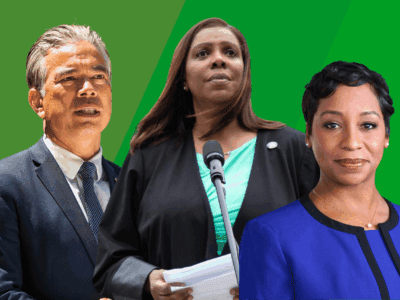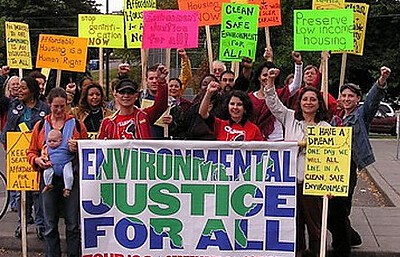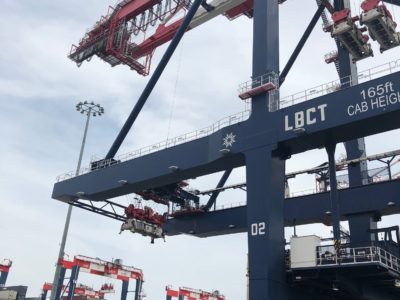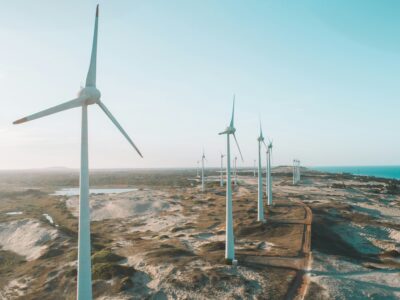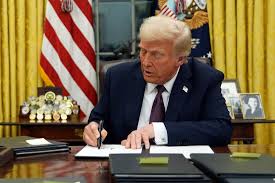environmental justice
Manila Protests Over Environment Follow a Rich Tradition
Happy Filipino American History Month. Here’s a look at Filipino-led protests for environmental justice.
The Philippines made international news last month when several tens of thousands of protestors took over the streets of Manila to express their outrage over the government’s embezzlement of over a trillion Philippine pesos (approximately $17.6 billion USD) designated for flood control projects. Losing this amount of climate-designated funds to corruption would be problematic anywhere …
Continue reading “Manila Protests Over Environment Follow a Rich Tradition”
CONTINUE READINGLighting Candles in Dark Times: Environmental Law Centers in the Trump Era
These law school centers show it’s possible find ways to make a difference.
Environmental law have become vibrant parts of the law and policy ecosystem. At a time when despondency seems all too common, the work of these law school centers offers beacons of hope for the future of environmental protection. Some of that work is playing defense — pushing back against deregulatory efforts — while other work plays offense by identifying innovative directions for environmental policy. A comprehensive survey isn’t practical, but I’ll provide examples from several different centers.
CONTINUE READINGDear 2025 1L:
Avoiding a climate disaster isn’t something today’s students can plan on tackling “over the course of their careers.” The most critical time will be the next fifteen years, which means you’ll need to get to work quickly.What we do together between now and 2035 will determine what your lives look like in 2050 and 2080, and what your children and grandchildren will see in the next century. So grab your books, get yourselves ready, and be prepared to head for the trenches when you graduate. No time to waste!
CONTINUE READINGStates Become “Norm Sustainers” on Environmental Justice
Guest Contributor Sharmila L. Murthy explains how state Attorneys General are acting as important counterweights to the federal government on environmental justice.
Guest contributor Sharmila L. Murthy is a Professor of Law and Public Policy at Northeastern University In the wake of misleading and inaccurate characterizations by the Trump Administration that wrongly label environmental justice activities as illegal discrimination, the Attorneys General of California, Massachusetts, and New York, joined by the Attorneys General of Arizona, Connecticut, Delaware, Hawaii, Illinois, Maryland, Minnesota, …
Continue reading “States Become “Norm Sustainers” on Environmental Justice”
CONTINUE READINGThe Annihilation of Environmental Justice: A Timeline
Trump has spared no effort to ensure that the government ignores the needs of vulnerable communities.
Amid the daily onslaught of executive actions, the cumulative effect of these actions may escape notice. A case in point is environmental justice. It’s not just one or two dramatic actions: there has been a systematic war of elimination against protections for vulnerable communities. While initiated by Trump, the effort has included a ream of destructive follow-on actions. The best way to make the point is a chronological account.
CONTINUE READINGCould CA Local Agencies Replicate Past Federal Solicitation Approaches?
Innovative solicitation & contracting approaches may make offshore wind infrastructure projects work better for communities
Offshore wind is a nascent industry in California, and actions by the new federal administration are threatening to slow or halt the significant progress made in recent years. Despite these new federal policies, however, state and local leaders are planning infrastructure needed to launch the sector in California, including port facilities suitable for assembling and …
Continue reading “Could CA Local Agencies Replicate Past Federal Solicitation Approaches?”
CONTINUE READINGCommunity Benefits from Climate Infrastructure Investments
Tracking Investments Under BIL and IRA
Community Benefits tools, including Community Benefits Plans (CBPs), Community Benefits Agreements (CBAs), Host Community Agreements, and other variations are tools that can accompany infrastructure investments and bring benefits to communities that host those projects. There are different drivers that result in the use of community benefits tools and the tools employed (i.e., agreements, plans, etc) …
Continue reading “Community Benefits from Climate Infrastructure Investments”
CONTINUE READINGTracking the Trump Administration
Rollbacks of Climate, Energy, and Environmental Policies and Investments
The first month of the Trump Administration has resulted in a dizzying flurry of actions and reactions. Many of us are wondering how to track the status of these actions, including the legal challenges to these actions. Luckily, a number of institutions are keeping track of the range of policy and legal actions that are …
Continue reading “Tracking the Trump Administration”
CONTINUE READINGTrump’s Seven Most Anti-Environmental Moves — and How to Push Back
There were dozens of actions, all harmful to the environment. These are the worst of the worst.
In the month since he reentered the White House, Trump has dedicated himself to knee-capping environmental protection through a series of executive orders. These orders aim to eliminate crucial environmental regulations, eviscerate key agencies like EPA, arbitrarily halt government funding, and eliminate environmental restraints on the private sector. But these are not done deals, and there are ways of pushing back.
CONTINUE READINGTrump Goes to War Against Environmental Justice
Apparently it’s “woke” to worry about excessive pollution in minority communities.
There is little or no basis for Trump’s claim that Clinton environmental justice order violated either civil rights laws or the Constitution. Trump’s embrace of this extremist view is an indication of just how much more radical his second term may be compared with his first. The law does not require the government to close its eyes to the harm its own policies may be causing to minority communities.
CONTINUE READING



